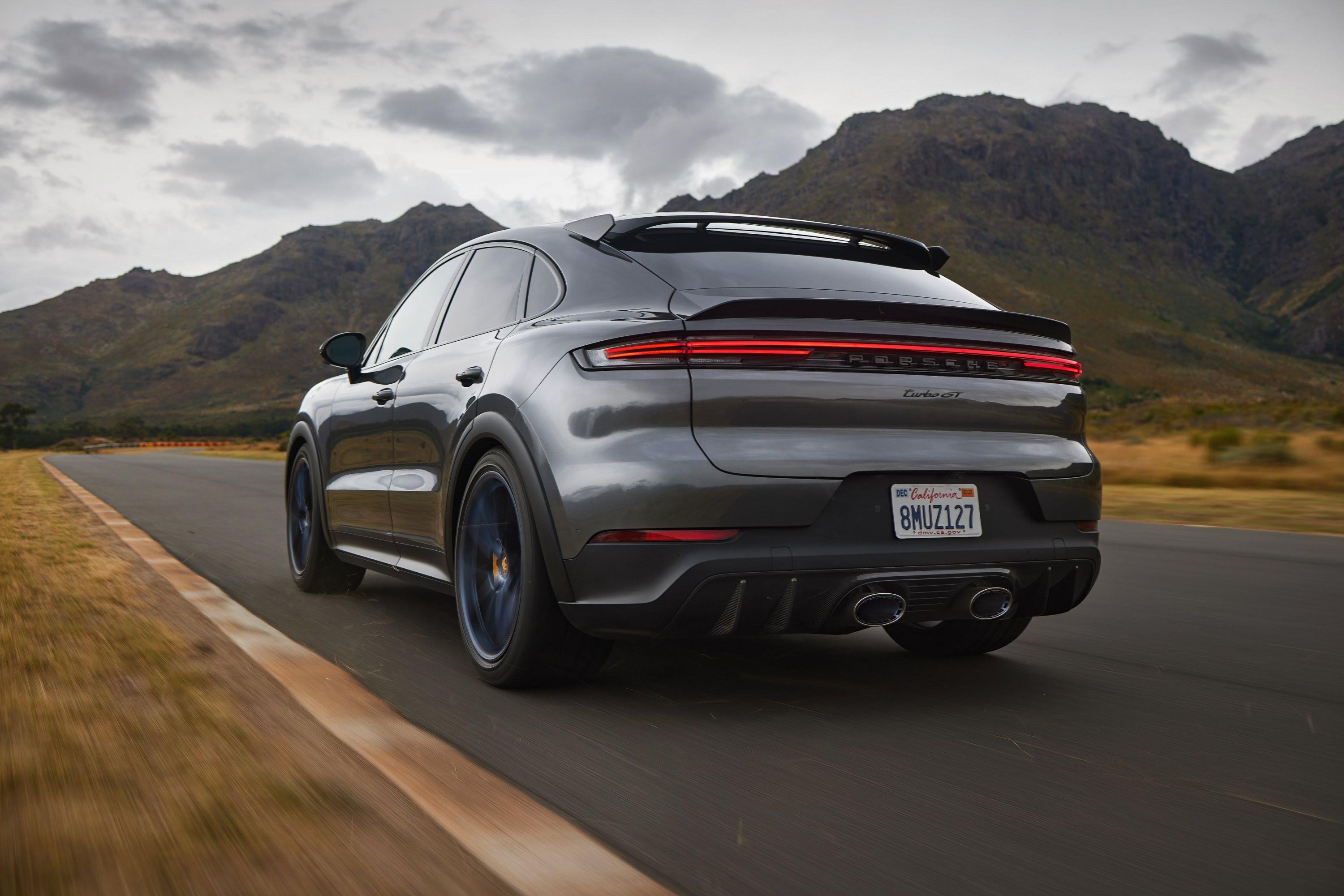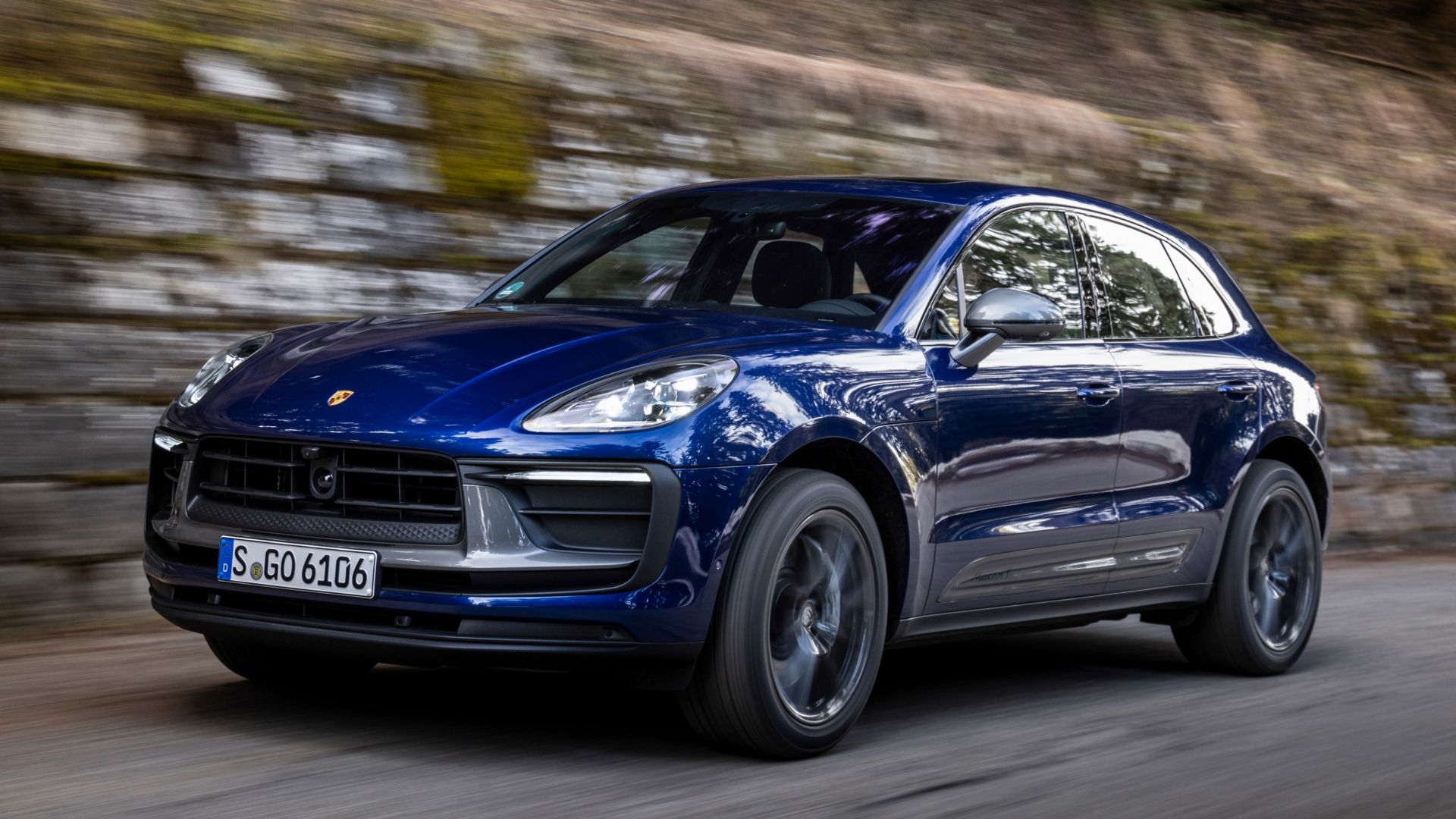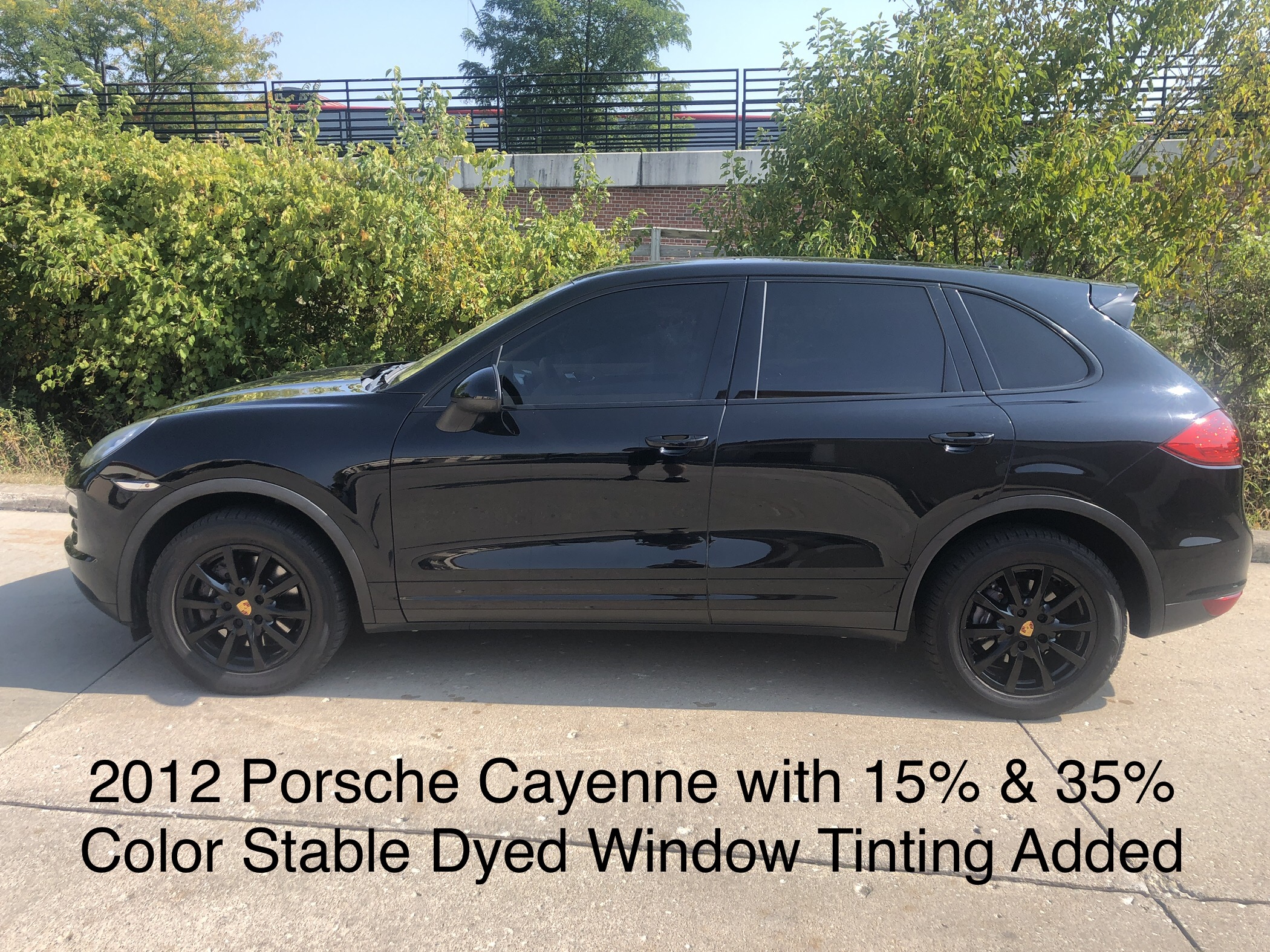Overview of Porsche SUVs

Porsche’s foray into the SUV market, initially met with skepticism, has proven to be a resounding success. The Cayenne, the brand’s first SUV, revolutionized the luxury SUV segment, showcasing a unique blend of Porsche’s renowned performance and sophisticated design. This evolution has continued with subsequent models, each meticulously crafted to maintain the brand’s core values while addressing evolving consumer demands.
Porsche’s SUV design philosophy is characterized by a distinctive blend of athleticism and elegance. The design language, though evolving, consistently emphasizes a powerful silhouette, sculpted lines, and a premium interior. These aesthetic choices are carefully calibrated to embody the performance and prestige associated with the Porsche brand.
History of Porsche SUVs
The Cayenne, launched in 2002, was Porsche’s pioneering foray into the SUV market. This marked a significant departure from the brand’s traditional focus on sports cars, but it proved to be a pivotal moment in their history. The Cayenne’s success paved the way for future SUV models, establishing a new segment for the company and demonstrating the adaptability of the brand. Subsequent models like the Macan further solidified Porsche’s presence in the SUV market, catering to a broader range of customer preferences.
Evolution of Porsche SUV Design Language
Porsche’s SUV design language has consistently maintained a strong identity while adapting to current design trends. Early models, like the Cayenne, showcased a more rugged and athletic aesthetic. Later models, including the Macan, lean towards a more refined and sculpted design. The key element has been the seamless integration of Porsche’s signature design cues into the SUV body, including the distinctive headlights, taillights, and overall silhouette.
Key Design Elements Distinguishing Porsche SUVs
Several design elements serve to distinguish Porsche SUVs from other luxury SUVs. These include the use of signature Porsche lighting elements, a distinctive grille design, and sculpted lines that emphasize the vehicle’s athletic nature. The interiors, though luxurious, retain the sporty character of the brand, with performance-oriented features and high-quality materials.
Comparison of Porsche SUV Models
The table below Artikels key performance characteristics of different Porsche SUV models.
| Model | Engine | Horsepower | 0-60 mph | Price |
|---|---|---|---|---|
| Cayenne | V8 | 550 | 4.0 seconds | $80,000 |
| Macan | Turbocharged 4-cylinder | 375 | 4.5 seconds | $65,000 |
| Panamera Sport Turismo | Twin-turbocharged V8 | 550 | 3.5 seconds | $110,000 |
The Cayenne, the largest of the three, offers a robust V8 engine, resulting in a substantial performance advantage, but at a premium price. The Macan, being the smallest, focuses on agility and efficiency, sacrificing some horsepower and performance relative to the Cayenne. The Panamera Sport Turismo, with its sporty yet versatile design, provides a compelling balance of performance and practicality. These differences reflect the careful consideration Porsche gives to satisfying diverse customer needs within the SUV segment.
Performance and Technology
Porsche SUVs boast a compelling blend of performance and cutting-edge technology, setting them apart in the luxury SUV segment. These vehicles are engineered for both exhilarating driving experiences and sophisticated comfort, catering to discerning clientele seeking both power and practicality. Their advanced features enhance safety and convenience, making them ideal for various driving conditions and purposes.
The engineering philosophy behind Porsche SUVs emphasizes a balance between power, agility, and refinement. This translates into a dynamic driving experience that seamlessly integrates exhilarating performance with a luxurious interior. The advanced technology seamlessly integrates with the design, enhancing the overall driving experience and offering a high degree of safety and convenience.
Engine Options and Performance Specifications
Porsche SUVs are available with a range of powerful engine options, each delivering distinct performance characteristics. From turbocharged V6 engines to potent V8 engines, the powertrain choices cater to varying needs and preferences. The specific power outputs and torque figures differ across models, reflecting the precise tuning for each variant. Precise specifications can be found in official Porsche documentation.
Advanced Technology Features
Porsche SUVs are equipped with sophisticated infotainment systems that provide seamless integration with smartphones and other devices. The intuitive user interfaces and high-resolution displays ensure easy navigation and control of various vehicle functions. These systems are complemented by advanced driver-assistance systems, enhancing safety and comfort.
Driving Experience
The driving experience in Porsche SUVs is characterized by precise handling and responsive acceleration. The advanced suspension systems and precise steering contribute to a dynamic driving experience. The combination of powerful engines and refined handling delivers an engaging driving experience. The responsiveness of the vehicle is tailored to suit the specific model and its targeted driving characteristics.
Key Safety Features and Technologies
Porsche SUVs prioritize safety with a comprehensive suite of advanced safety features. These features are designed to protect occupants in various accident scenarios. The suite of technologies includes active safety systems like lane-keeping assist, blind-spot monitoring, and adaptive cruise control. These systems work proactively to mitigate potential hazards and enhance the overall safety of the driver and passengers.
Driver-Assistance Systems
| Feature | Description | Benefits |
|---|---|---|
| Adaptive Cruise Control | Maintains a set distance from the vehicle ahead, adjusting speed automatically to maintain the desired following distance. | Improved safety and efficiency by preventing collisions and maintaining a consistent speed. |
| Lane Keeping Assist | Provides gentle steering adjustments to help the driver stay within their lane, alerting the driver if they drift unintentionally. | Reduces the risk of lane departures and enhances driver awareness, especially in conditions with distractions. |
| Blind Spot Monitoring | Alerts the driver to vehicles in their blind spots using visual and/or audible indicators. | Reduces the risk of collisions when changing lanes or merging, improving overall safety on the road. |
| Parking Assist | Facilitates parking maneuvers by assisting the driver with parking in tight spaces. | Improves ease and efficiency of parking, especially in tight urban areas or parking garages. |
Interior and Exterior Design
Porsche SUVs are renowned for their meticulously crafted interiors and striking exterior aesthetics. These vehicles seamlessly blend performance-focused design with luxurious comfort, appealing to discerning drivers who appreciate both cutting-edge technology and refined craftsmanship. The design language across the range reflects Porsche’s commitment to distinctive styling and high-quality materials.
Interior Design Elements
The interiors of Porsche SUVs are characterized by a blend of premium materials and intuitive layouts. High-quality leather is a prevalent feature, often combined with Alcantara for accents and a touch of sophistication. The use of contrasting stitching and meticulous attention to detail enhance the overall aesthetic appeal. Instrument panels and control surfaces are typically designed with a focus on ergonomics and ease of use, allowing drivers to operate essential functions quickly and efficiently. Modern infotainment systems are seamlessly integrated, enhancing the user experience.
Exterior Design Features
Porsche SUVs exhibit distinctive exterior design features, reflecting the brand’s heritage and commitment to athleticism. Sharp lines, sculpted body panels, and aggressive front and rear fascias contribute to a dynamic and assertive presence. LED lighting technology is prominently featured, adding a modern and sophisticated touch. Wheel designs vary depending on the model, ranging from sleek and aerodynamic to more robust and aggressive styles, further emphasizing the vehicle’s performance capabilities.
Cabin Comfort and Spaciousness
The cabin space in Porsche SUVs is designed to offer both comfort and practicality. The seating positions are typically ergonomically sound, supporting drivers and passengers for extended journeys. The availability of adjustable seats and supportive bolstering options further enhance the driving experience. Cargo space is generally well-proportioned and adaptable, accommodating various luggage and cargo needs.
Materials and Craftsmanship
Porsche’s commitment to quality extends to the materials and craftsmanship employed in its SUVs. The meticulous attention to detail in stitching, panel alignment, and material selection ensures a premium feel. High-grade leather, often sourced from renowned tanneries, provides exceptional tactile comfort and durability. The integration of carbon fiber or other advanced materials in some models further highlights the sophisticated construction. A high level of precision in manufacturing processes contributes to the longevity and robustness of the vehicles.
Comparison of Interior Design Across Models
| Model | Interior Material | Colors | Seating Capacity |
|---|---|---|---|
| Cayenne | Leather, Alcantara | Black, Beige | 5 |
| Macan | Leather, synthetic materials | Black, Gray, Red | 4 or 5 |
| Cayenne Coupe | Leather, Alcantara, carbon fiber | Black, Tan, Red | 4 or 5 |
The table above provides a concise overview of the interior materials, colors, and seating capacity of some Porsche SUV models. This comparative data highlights the varying design choices and options available to customers, reflecting the versatility and range of customization within the Porsche SUV line.
Price and Value Proposition

Porsche SUVs command premium prices, reflecting their engineering excellence, performance capabilities, and exclusive brand image. The high price point is a deliberate strategy, appealing to a clientele seeking unparalleled luxury and driving experience. This section delves into the pricing strategy, the factors contributing to the high cost, the value proposition, and the price-to-performance ratio compared to competitors.
Pricing Strategy
Porsche employs a tiered pricing strategy for its SUVs, adjusting prices based on model, engine type, and optional features. The base price serves as a starting point, with a range of packages and upgrades available to personalize the vehicle. This flexible approach allows potential buyers to tailor their SUV to their specific needs and preferences while maintaining a premium price point.
Factors Contributing to High Price
Several factors contribute to the elevated cost of Porsche SUVs. Sophisticated engineering, utilizing high-quality materials, and meticulous craftsmanship are integral parts of the production process. Advanced technology, such as state-of-the-art infotainment systems and driver-assistance features, also contribute significantly to the price. Furthermore, the exclusivity of the Porsche brand, a legacy of performance and prestige, adds a substantial premium to the vehicle’s value. The rigorous testing and quality control measures implemented throughout the manufacturing process also contribute to the elevated price.
Value Proposition
The value proposition of a Porsche SUV extends beyond the tangible features. The brand’s reputation for performance and luxury significantly influences the perceived value. The driving experience, known for its dynamic handling and exhilarating acceleration, is a key aspect of the value proposition. The sophisticated interior design, incorporating high-quality materials and meticulous craftsmanship, adds to the overall experience. The extensive range of safety and technology features, including advanced driver-assistance systems, further enhance the value proposition.
Price-to-Performance Ratio
Comparing the price-to-performance ratio of Porsche SUVs with competitors requires careful consideration. While Porsche SUVs command a higher price, the exceptional performance, refined handling, and luxurious interior often justify the cost for discerning buyers. Competitors may offer comparable performance in some aspects, but rarely match the overall package of performance, luxury, and brand prestige that Porsche provides. A crucial factor is the buyer’s individual priorities. If prioritizing raw performance and driving experience, the higher price might be justifiable.
Cost of Optional Packages and Features
The cost of optional packages and features can significantly impact the overall price of a Porsche SUV. The following table illustrates the cost of one specific example package:
| Option | Cost | Description |
|---|---|---|
| Sport Package | $3,000 | Enhanced suspension and styling elements, including sportier bumpers and exhaust tips, contributing to improved handling and visual appeal. |
| Premium Package | $5,000 | Includes premium leather seats, advanced infotainment system with larger display, and high-end sound system. |
| Technology Package | $4,500 | Enhanced driver-assistance systems, including adaptive cruise control, lane keeping assist, and parking assist. |
Market Positioning and Competitors

Porsche SUVs carve a unique niche in the luxury SUV market, targeting affluent consumers seeking a blend of performance, prestige, and advanced technology. They are positioned as aspirational vehicles, embodying the brand’s legendary motorsport heritage and sophisticated design. This positioning differentiates them from more mainstream luxury brands, appealing to a discerning clientele who prioritize exclusivity and performance.
Porsche SUVs aim to stand out through a combination of dynamic handling, cutting-edge technology, and a meticulously crafted interior, all within a premium price range. The target market encompasses individuals with high disposable incomes, valuing both the brand recognition and the performance characteristics of a Porsche.
Target Market
The target market for Porsche SUVs consists primarily of affluent individuals and families who desire a luxury SUV that embodies performance and exclusivity. They often possess strong brand loyalty to the Porsche brand and appreciate its history of motorsport and engineering excellence. Furthermore, this market segment often includes individuals involved in high-profile professions or with significant business interests. This demographic frequently seeks vehicles that project an image of success and sophistication.
Competitors
Porsche SUVs face significant competition from established luxury SUV brands. Key competitors in the luxury SUV segment include BMW X5, X6, and X7; Mercedes-Benz GLE, GLS, and AMG; and Audi Q7, Q8, and RS Q8. These competitors offer comparable levels of luxury and performance, catering to similar target demographics.
Comparison
| Feature | Porsche SUV | BMW X5 | Mercedes-Benz GLE |
|---|---|---|---|
| Engine | V8 or hybrid | V6 or inline-6 | V6 or inline-6 |
| Performance | Exceptional acceleration and handling | Powerful and refined | Powerful and comfortable |
| Interior Design | Premium materials, innovative technology | Luxurious and spacious | Sophisticated and well-appointed |
| Price | High | Competitive | Competitive |
The table highlights key differentiators, including engine options, performance characteristics, interior design, and pricing. The comparison emphasizes how Porsche SUVs differentiate themselves through their specific engineering and performance capabilities.
Unique Selling Points
Porsche SUVs offer a distinctive blend of performance and luxury that sets them apart from competitors. Their unique selling points include:
- Exceptional Performance: Porsche SUVs are known for their powerful engines, precise handling, and engaging driving experience. This performance focus is a key differentiator.
- Distinctive Design: The exterior and interior design of Porsche SUVs are meticulously crafted to project an image of sportiness and sophistication, appealing to a specific aesthetic preference.
- Advanced Technology: Porsche SUVs incorporate advanced driver-assistance systems and infotainment features, reflecting the brand’s commitment to innovation and cutting-edge technology.
- Brand Prestige: The Porsche brand enjoys a reputation for excellence in automotive engineering and performance, which resonates with a target market that values prestige and exclusivity.
These elements collectively create a unique value proposition for the Porsche SUV, attracting consumers who prioritize a premium ownership experience.
Future Trends and Developments
The luxury SUV market is constantly evolving, and Porsche, as a leading brand, is poised to adapt and innovate. Future Porsche SUVs will likely incorporate cutting-edge technology, design aesthetics, and performance enhancements to maintain their position at the forefront of the industry. The company’s commitment to performance and exclusivity will likely remain central to its future strategies.
Potential Future Developments in Porsche SUV Technology
Porsche is expected to significantly integrate electric powertrains into its SUV lineup. This shift will be driven by both environmental concerns and the increasing demand for electric vehicles. Expect advancements in battery technology, potentially leading to longer ranges and faster charging times. Hybrid powertrains will likely remain available as transitional options, but the emphasis will increasingly shift towards fully electric vehicles. Advanced driver-assistance systems (ADAS) will also likely become even more sophisticated, incorporating features like autonomous parking and enhanced lane-keeping assistance.
Future Design Trends for Porsche SUVs
Design trends for future Porsche SUVs are predicted to emphasize both aerodynamic efficiency and a sleek, contemporary aesthetic. Lightweight materials, such as carbon fiber and aluminum alloys, will likely be incorporated to enhance performance without compromising structural integrity. Exterior design will likely prioritize streamlined silhouettes and aggressive lines, while interior design will focus on premium materials, innovative user interfaces, and advanced digitalization.
Possible Future Performance Enhancements for Porsche SUVs
Future Porsche SUVs are anticipated to see performance enhancements driven by both technological advancements and refined engineering. The adoption of electric powertrains will offer the potential for significant torque output and acceleration. Advanced suspension systems and optimized aerodynamics will contribute to improved handling and reduced drag. Further development of all-wheel drive systems, possibly with enhanced torque vectoring capabilities, could improve on-road and off-road performance.
Outlook on the Future of Porsche SUVs in the Luxury SUV Market
Porsche SUVs will likely continue to dominate the luxury SUV segment. Their combination of performance, prestige, and technological sophistication will remain highly attractive to affluent buyers. The transition to electric powertrains will be a key differentiator, positioning Porsche as a leader in sustainable luxury. Competitors will likely follow suit, but Porsche’s established brand reputation and engineering prowess will likely help them maintain a significant market advantage.
Electric powertrains are likely to become increasingly prominent in future Porsche SUVs, leading to improved fuel efficiency and reduced emissions. Design trends will likely emphasize lightweight materials and aerodynamic enhancements for enhanced performance.